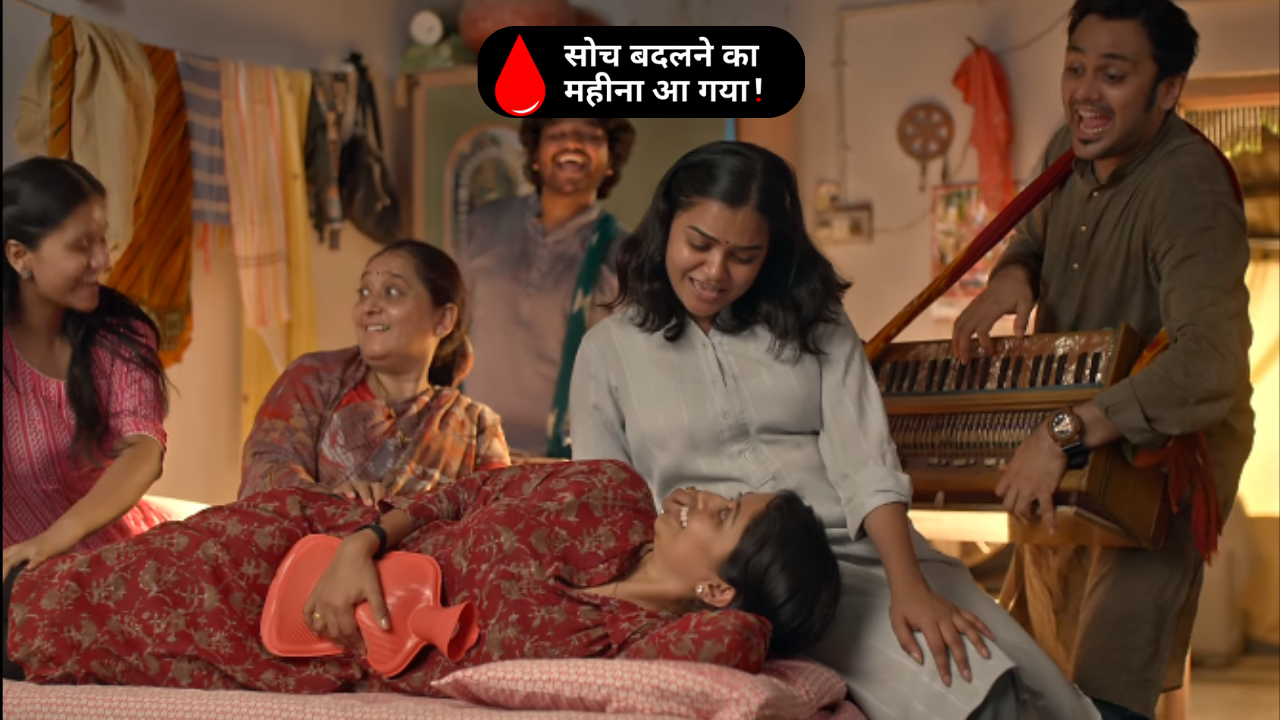Tata Trusts' new campaign wants you to talk about periods like you talk about hair fall

Built on ethnographic research across rural Jharkhand, Gujarat, and Uttar Pradesh, Tata Trusts’ new Social and Behaviour Change Communication (SBCC) campaign, #MaheeneKoSehatSeJodo, takes aim at the silence and stigma surrounding menstruation in many Indian households. The campaign, launched on Menstrual Hygiene Day, stems from the insight that restrictive social norms and generational taboos often prevent open conversations, particularly between mothers and daughters. Even frontline health workers, the campaign notes, frequently face resistance when addressing menstrual health within communities.
This campaign aims to change that, not with heavy messaging or dramatic appeals, but with humour, relatability, and the power of everyday family dynamics with a pinch of good music.
/socialsamosa/media/post_attachments/b01049b5-9f9.png)
Each story is tied together by a cheerful jingle, Maheena aa gaya. The line is intentionally simple , not a euphemism, but a colloquial, light-hearted phrase signalling that periods are nothing to whisper about. The musical refrain pops up across different scenes, normalising the discussion in the same way one might casually mention a pimple, weight gain, or neck sprain.
/socialsamosa/media/post_attachments/3d1df981-8ab.png)
/socialsamosa/media/post_attachments/e1fb4e85-8ff.png)
The film opens with a man looking at himself in the mirror and fretting, Phunsi aa gayi (I got a pimple). From there, the musical narrative moves through other routine observations, Kitna lamba ho gaya (You’ve grown so tall), or someone remarking on yellowed eyes, all everyday signs we casually talk about. Then, we cut to a mother feeding her daughter, with the mother saying Maheena aa gaya, which prompts a burst of musical cheer, a musical band marching in to reinforce the message: it’s just a sign of health.
/socialsamosa/media/post_attachments/d5c37c14-64d.png)
As the campaign progresses, it draws subtle comparisons to other common bodily experiences, hair fall, trembling hands, even the relief of regular bowel movements, all to suggest that menstruation is no different.
/socialsamosa/media/post_attachments/0da18f2b-304.png)
In one scene, a girl rests with a hot water bag while the musical troupe surrounds her, reminding viewers that cramps and fatigue are natural, signs of a healthy body.
/socialsamosa/media/post_attachments/36ed6357-e67.png)
Towards the end, a woman in a pink saree, likely an ASHA worker, explains that regular periods are a key indicator of health and should be monitored like any other bodily function. Another woman adds that irregularities in the menstrual cycle can point to underlying health concerns. Finally, a man delivers the campaign’s closing thought: “It’s a sign of health first, everything else comes after.”
/socialsamosa/media/post_attachments/b1382d2f-b6a.png)
Everyone comes together to echo the campaign’s call to action:
Soch badlo, maheene ko sehat se jodo.
(Change your thinking, link periods to health.)
/socialsamosa/media/post_attachments/34efa0e8-67a.png)
In a country where periods remain a taboo, sanitary pads are still wrapped in newspaper or black plastic to 'hide' them, and even the sight of them can make people uncomfortable, this campaign arrives as an icebreaker, not just for women who carry the weight of silence and the pain they endure, but also for men who’ve long been left out of the conversation around menstrual health and especially the one's who have been ignorant. By using everyday moments, humour, and local language, it opens the door to normalising periods as what they truly are: a routine sign of health, not shame.
News